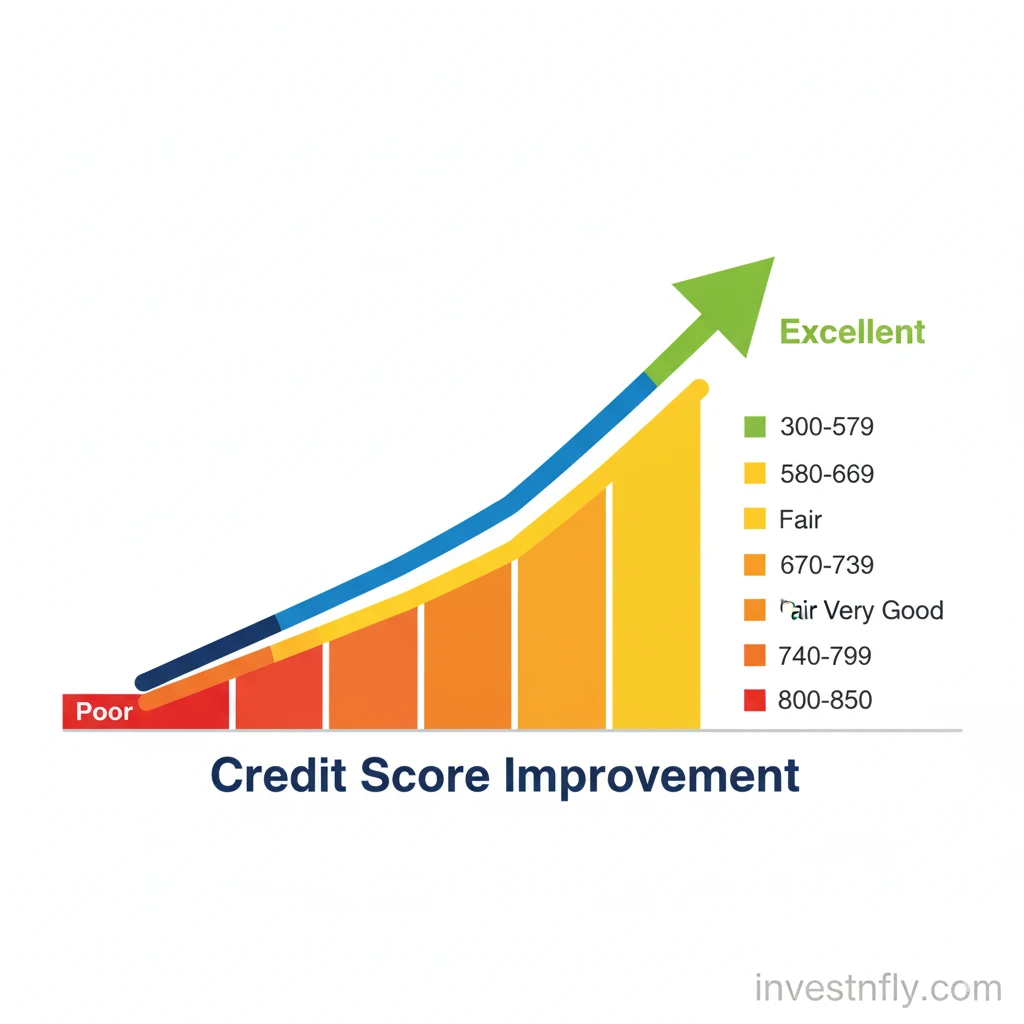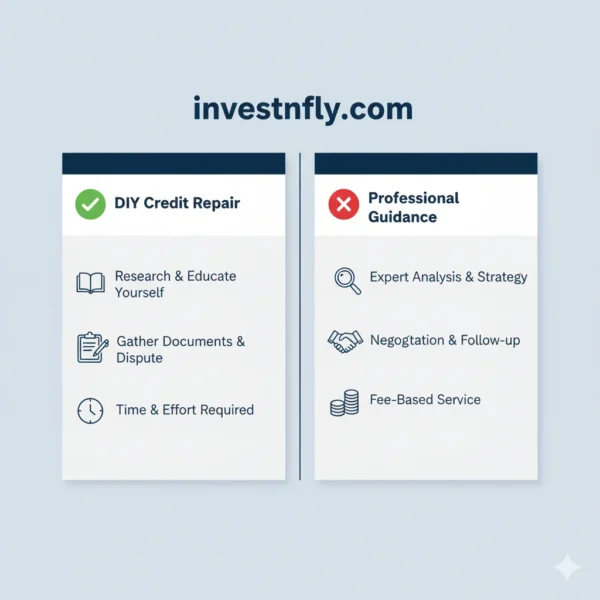Introduction to Credit Repair Huntington Beach

Maintaining a healthy credit score has become essential for financial stability in the United States. From renting an apartment to applying for a car loan or even securing better insurance rates, your credit history can influence almost every major financial decision. For residents of Huntington Beach, California, this is especially true. The city’s high cost of living and competitive housing market make it even more important to keep a strong credit profile.
This is where credit repair Huntington Beach becomes relevant. Credit repair refers to the process of identifying and resolving negative items on your credit report, improving your overall score, and giving you access to better financial opportunities. Whether it’s disputing inaccuracies with credit bureaus, lowering credit utilization, or learning new money management habits, effective credit repair can make a meaningful difference.
In this complete guide, we’ll explore everything you need to know about credit repair Huntington Beach. You’ll learn what credit repair actually means, why it matters in California, the most common issues local residents face, and proven strategies to rebuild your credit. By the end of this article, you’ll have a clear roadmap that can help you take control of your financial future in Huntington Beach.
Fuel Cards for Business with No Credit Check in the USA (2025 Guide)
Table of Contents
What is Credit Repair?
Before exploring the importance of credit repair Huntington Beach, it’s essential to understand what credit repair actually means. Credit repair is the process of improving your credit score by identifying inaccurate, outdated, or unfair information on your credit report and working to remove or correct it.
Every U.S. consumer has three main credit reports — Experian, Equifax, and TransUnion. These reports contain details about your borrowing history, payments, collections, and more. Even small errors, such as a mistakenly reported late payment, can bring your score down significantly. That’s why reviewing your reports regularly is the first step in effective credit repair. According to the Federal Trade Commission (FTC), millions of Americans find inaccuracies in their reports each year, which can affect their ability to borrow money.
Credit repair doesn’t only involve correcting errors. It can also include strategies such as lowering your credit utilization ratio, negotiating with creditors, and building positive financial habits. For example, consistently paying bills on time or reducing debt balances can gradually increase your score.
For residents of Huntington Beach, credit repair is particularly valuable because of the area’s lifestyle and economic environment. The city’s competitive housing market and relatively high living expenses make it harder for those with poor credit to access loans or affordable interest rates. By focusing on credit repair, Huntington Beach residents can open the door to better financial opportunities, from renting apartments to financing cars or qualifying for mortgages.
In short, credit repair is about taking control of your financial reputation. As Experian explains, a good score doesn’t just improve borrowing power — it provides peace of mind and confidence when making important life decisions.
Best Credit Union Business Credit Cards in 2025 – Features, Benefits & How to Apply
Why Credit Repair is Important in Huntington Beach

Living in Huntington Beach, California, comes with many advantages — sunny weather, coastal living, and a strong local economy. But it also comes with higher living expenses compared to many other cities in the state. In such an environment, your credit score plays a critical role in shaping your financial opportunities. That’s why credit repair Huntington Beach isn’t just helpful — it’s often necessary.
A poor credit score can affect multiple aspects of life:
- Housing Opportunities: Landlords in Huntington Beach often check credit reports before approving rental applications. A low score can make it harder to secure an apartment near popular neighborhoods like Downtown or Bolsa Chica.
- Mortgage Rates: With Huntington Beach’s high property values, even a slight drop in your credit score can increase your mortgage interest rate, costing thousands of dollars over time.
- Car Financing: Many residents rely on car loans. A bad credit score often means higher interest rates, making vehicles much more expensive in the long run.
- Insurance Premiums: Credit history can influence auto and home insurance premiums in California. A better score could lead to noticeable savings.
- Job Opportunities: In some industries, employers may review credit reports during the hiring process, especially for financial roles.
According to CA.gov Consumer Resources, protecting and improving your credit score should be considered part of financial wellness. In a city like Huntington Beach, where financial decisions are closely tied to lifestyle, credit repair can open doors to better housing, affordable financing, and long-term stability.
For residents struggling with past financial mistakes, starting the journey of credit repair can mean moving from constant stress toward financial freedom.
Common Credit Problems in Huntington Beach
While every individual’s financial situation is unique, certain credit challenges are commonly experienced by residents of Huntington Beach. Understanding these problems is the first step toward effective credit repair Huntington Beach strategies.

Here are some of the most frequent issues:
- Late or Missed Payments
Even a single late payment can significantly drop a credit score. In high-cost areas like Huntington Beach, juggling bills often leads to missed deadlines. - High Credit Utilization
Using a large percentage of available credit limits shows lenders a risk. Financial experts recommend keeping utilization below 30% for healthier scores. - Collections and Charge-Offs
Accounts sent to collections remain a serious negative mark. These are common when medical bills, credit cards, or utility payments go unpaid. - Bankruptcies
Bankruptcy can stay on a credit report for up to 10 years, making recovery more challenging but not impossible with proper repair efforts. - Identity Theft
California has seen rising cases of identity fraud. Stolen personal information often leads to fraudulent accounts or charges, which must be disputed quickly. - Errors on Credit Reports
According to TransUnion, errors like duplicate accounts or incorrect balances are more common than many realize. Left unchallenged, these mistakes hurt your score unnecessarily.
For Huntington Beach residents, these issues can limit access to housing, increase borrowing costs, or even prevent approval for everyday needs like cell phone plans. Addressing them through credit repair Huntington Beach ensures a smoother financial future.
How Does Credit Repair Work?

Understanding how the process works is key to starting your journey toward better financial health. Whether you do it yourself or seek professional guidance, the fundamentals of credit repair Huntington Beach remain the same.
Here’s a clear step-by-step breakdown:
Step 1: Get Your Credit Reports
- Every U.S. consumer is entitled to one free report per year from each bureau — Experian, Equifax, and TransUnion.
- Visit AnnualCreditReport to securely access your reports.
- Review each report carefully for inaccuracies or outdated information.
Step 2: Identify Negative or Inaccurate Items
- Look for late payments, charge-offs, collections, bankruptcies, or duplicate accounts.
- Even small reporting errors, like an incorrect balance, can drag down your score.
- Highlight anything that doesn’t look accurate or complete.
Step 3: File Disputes
- Under the Fair Credit Reporting Act (FCRA), you have the right to dispute inaccurate information.
- File disputes online with each credit bureau or send a written letter.
- The bureaus typically investigate within 30 days and must respond with results.
Step 4: Negotiate and Communicate with Creditors
- Sometimes, direct communication with creditors helps resolve past-due accounts.
- Request goodwill adjustments or payment arrangements where possible.
- A settled account is often better than an unpaid collection.
Step 5: Build Positive Credit Habits
- Pay all bills on time moving forward.
- Keep credit card balances below 30% of your total limit.
- Avoid unnecessary hard inquiries from frequent new credit applications.
Step 6: Monitor Progress Regularly
- Use credit monitoring tools to track your score.
- MyFICO offers insights into which factors impact your score the most.
- Continuous monitoring helps prevent future issues like identity theft.
DIY Tips for Credit Repair Huntington Beach Residents
For residents of Huntington Beach, these steps can be life-changing. Improving your credit isn’t an overnight fix — it requires patience, persistence, and consistent action. But with time, these steps lead to stronger credit profiles and better financial opportunities.
While professional help is an option, many people in Huntington Beach prefer to start with simple do-it-yourself methods. The good news is that DIY approaches to credit repair Huntington Beach can be highly effective if done consistently. Here are some practical steps:
- Pay Bills on Time
Payment history makes up about 35% of your credit score. Set up reminders or automatic payments to avoid missed due dates. - Lower Your Credit Utilization
Aim to use less than 30% of your available credit limit. For example, if your card has a $5,000 limit, try to keep the balance under $1,500. - Dispute Errors Quickly
Check your credit reports from Equifax or other bureaus regularly. If you see inaccuracies, file disputes immediately. - Avoid Frequent Hard Inquiries
Too many credit card or loan applications in a short period can lower your score. Only apply when absolutely necessary. - Use a Secured Credit Card
For those rebuilding credit, secured cards require a deposit and help establish positive payment history. Over time, this adds strength to your profile. - Diversify Credit Types
A mix of installment loans (like car loans) and revolving credit (like credit cards) shows lenders you can handle multiple kinds of debt responsibly. - Monitor Your Score Regularly
Use free tools or apps to keep track of progress. Consistent monitoring also helps detect identity theft early.
By practicing these habits, residents of Huntington Beach can steadily improve their scores without costly programs. While results don’t appear overnight, consistent effort leads to significant improvements over a few months.
DIY doesn’t mean doing everything alone — it means taking charge of your financial health with the right information and discipline.
Credit Repair vs Credit Counseling
When searching for ways to improve financial health, many Huntington Beach residents come across two common options: credit repair and credit counseling. While both aim to help people manage their credit, they work differently and serve different needs.
Credit Repair Huntington Beach
Credit repair focuses on identifying and removing errors, negotiating with creditors, and improving your credit report. It’s most effective if your report contains inaccurate information or negative marks that can be challenged.
Pros:
- Helps remove inaccurate or outdated negative items
- Improves chances of getting better loan and credit card rates
- Can deliver faster improvements in certain cases
Cons:
- Doesn’t fix underlying money management issues
- Results take time and depend on what’s on your report

Credit Counseling
Credit counseling, on the other hand, is about financial education. Nonprofit agencies provide advice, create debt management plans, and teach budgeting skills. As noted by the CFPB, counseling services often focus on long-term money habits rather than immediate score improvement.
Pros:
- Provides financial education and debt repayment plans
- Helps develop long-term budgeting discipline
- Often offered by nonprofit agencies at low cost
Cons:
- Does not remove negative marks from reports
- Credit score improvement is usually slower
For Huntington Beach residents, choosing between the two depends on their goals. Those looking for faster score improvements may consider credit repair, while those seeking long-term stability can benefit from counseling.
Frequently Asked Questions

People searching for credit repair Huntington Beach often have similar concerns. Here are some of the most common questions and clear answers to guide you.
1. How long does credit repair take in Huntington Beach?
Credit repair is not an instant process. On average, improvements can take 3 to 6 months, depending on the number of negative items and the responsiveness of credit bureaus. Some people see results faster if their reports contain simple errors, while others may need more time to rebuild through positive habits. Patience and consistency are key.
2. Is credit repair legal in California?
Yes, credit repair is legal in California and across the United States. Under the Fair Credit Reporting Act (FCRA), every consumer has the right to dispute inaccurate information on their credit report. According to the FTC, companies cannot promise overnight results or demand upfront payments, so always be cautious of scams.
3. Can I do credit repair myself?
Absolutely. Many Huntington Beach residents choose to handle credit repair themselves by pulling their free annual reports, reviewing them for errors, and filing disputes directly with the credit bureaus. While professional services exist, DIY methods are often effective if you stay organized and follow the correct steps.
4. How much does credit repair cost in Huntington Beach?
The cost varies depending on whether you choose DIY or professional services. DIY credit repair can be completely free, except for time and effort. Professional services may charge monthly fees ranging from $50 to $150. Always ensure that any paid service complies with California state laws and consumer protection regulations.
5. Will credit repair guarantee a higher score?
No method can guarantee specific results. The effectiveness of credit repair Huntington Beach depends on your unique situation. Disputing inaccuracies can quickly remove harmful items, but long-term improvement requires positive habits like timely payments and lower credit utilization. Improvement is possible, but it’s never instant or guaranteed.
6. Does credit repair help with renting or mortgages in Huntington Beach?
Yes, landlords and lenders often review credit reports before approving applications. A stronger credit profile increases your chances of renting in competitive neighborhoods like Downtown Huntington Beach or qualifying for a mortgage at a lower rate.
Conclusion
Building and maintaining good credit is not just about numbers on a report — it directly affects opportunities in housing, loans, insurance, and overall financial freedom. For residents of California, and especially those living in a competitive city like Huntington Beach, strong credit can mean the difference between affordable living and ongoing financial stress.
This guide has highlighted what credit repair Huntington Beach means, why it matters, the common challenges residents face, and the practical steps that can help improve scores. From understanding your credit reports to disputing errors, managing debt, and developing positive habits, every action contributes to long-term financial health.
While professional services exist, many individuals can successfully manage their credit repair efforts with consistency and discipline. The key is to stay informed, proactive, and patient throughout the process.
Whether your goal is to rent an apartment near the beach, qualify for a mortgage, or simply gain peace of mind, starting your credit repair journey today is the best step forward. Over time, steady progress will transform your financial future in Huntington Beach.
If you’re ready to take charge of your financial future, start by checking your credit reports today. Review them for errors, set reminders for timely payments, and track your progress each month. Small, consistent actions can make a big difference. Begin your journey of credit repair Huntington Beach now and move one step closer to financial freedom.
